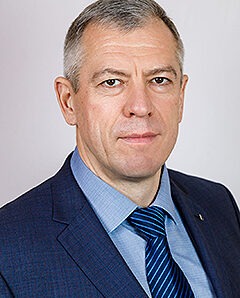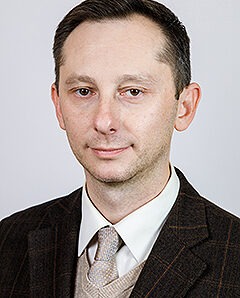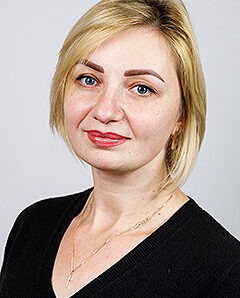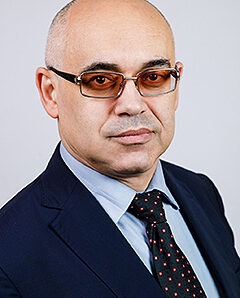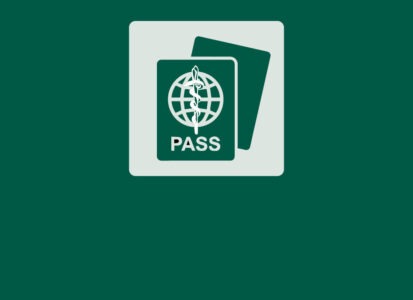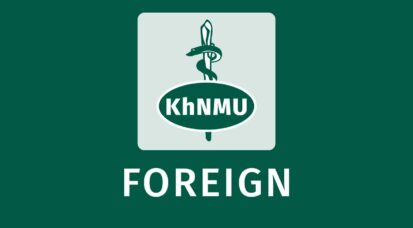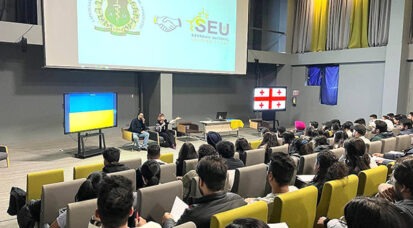The foreign citizens and stateless persons, who are in Ukraine on legal grounds, exercise the same rights and freedoms as well as incur the same liabilities as the citizens of Ukraine, except as provided in the Constitution, laws or international treaties of Ukraine.
Entering and leaving Ukraine by foreign citizens and stateless persons; terms of their stay in Ukraine
Foreign citizens and stateless persons enter Ukraine having a passport document and a visa, received in accordance with the established procedure, unless otherwise provided by legislation or international treaties of Ukraine.
Foreign citizens and stateless persons are obliged to provide their biometric data for registration during border control in state border checkpoints.
The term of stay of foreign citizens and stateless persons in Ukraine is fixed by the visa, Ukraine’s legislation or an international treaty of Ukraine.
Visa processing
The rules for a visa processing for foreign citizens and stateless persons and the list of documents required for its receipt are established by the Cabinet of Ministers of Ukraine. The decision as for processing of a visa is taken in accordance with the established procedure by a diplomatic mission or a consular office of Ukraine, the Ministry of Foreign Affairs of Ukraine or a representative office of the Ministry of Foreign Affairs of Ukraine on the territory of Ukraine.
Entering and leaving Ukraine are performed by:
– foreign citizens and stateless persons – on a passport document if there is an appropriate visa, unless another order for entering and leaving provided by legislation or an international treaty of Ukraine;
– foreign citizens and stateless persons, who study in educational institutions of Ukraine at least during one year – on a passport document and a certificate of temporary residence.
Leaving Ukraine:
– the foreign citizens and stateless persons, staying in Ukraine on legal grounds, are free to leave the territory of Ukraine in accordance with the established procedure, except as provided in a law;
– leaving Ukraine by a foreign citizen or a stateless person is not allowed if:
1) he/she is informed of suspicion of committing a criminal offense or his/her criminal case is investigated in court – until the completion of criminal proceedings;
2) he/she is convicted of committing a criminal – until his/her sentence is served or the person is released from punishment;
3) his/her leaving conflicts with interests of the national security of Ukraine – until the cessation of circumstances, which prevent the above leaving.
Leaving Ukraine by a foreign citizen or a stateless person can be temporarily delayed by the decision of a court until he/she fulfils real obligations to natural and legal persons, unless otherwise provided by international treaties of Ukraine.
Responsibilities of foreign citizens and stateless persons
The illegal immigrants and other foreign citizens and stateless persons, who committed a crime, administrative or other offenses, bear responsibility as set forth by laws.
If a foreign citizen or a stateless person has no grounds for his/her temporary residence or temporary stay on the territory of Ukraine, the term of his/her stay is reduced.
The decision concerning reduction of a temporary stay of a foreign citizen or a stateless person on the territory of Ukraine is taken by the central executive body, which realizes the state policy in the field of migration, or by agencies of the Security Service of Ukraine.
Voluntary return of foreign citizens and stateless persons
The foreign citizens and stateless persons, who have no legal grounds for staying in Ukraine or cannot fulfill the obligation to leave Ukraine not later than on the day of completion of the appropriate period of their stay due to absence of financial means or loss of a passport document, can return voluntarily to their native country or a third country, including assistance of international organizations.
The decision concerning a voluntary return of foreign citizens or stateless persons is taken by the central executive body, which realizes the state policy in the field of migration, upon the application of a foreign citizen or a stateless person for his/her voluntary return.
In case of the positive decision as for his/her voluntary return the foreign citizen or the stateless person receives a certificate for a person, who returns voluntarily. The above certificate is the ground for a temporary stay of a foreign citizen or a stateless person on the territory of Ukraine until the completion of the procedure of his/her voluntary return. When the procedure of voluntary return is completed, the above certificate is withdrawn or invalidated.
The term for performing the procedure of voluntary return should not exceed 60 days.
In case of the positive decision as for a voluntary return of a foreign citizen or a stateless person, who are not 18, it should be determined that in case of his/her voluntary return the above person will return to one of his/her family members or guardian.
Compulsory return of foreign citizens and stateless persons
A foreign citizen or a stateless person can be compulsorily returned to their native country or a third country, if his/her actions violate the laws concerning the legal status of foreign citizens or stateless persons or conflict with interests of the national security of Ukraine or maintenance of public order, or if it necessary for protecting health and defending rights and legitimate interests of Ukrainian citizens, by the decision of the central executive body, which provides realization of the state policy in the field of migration, by an agency of the Security Service of Ukraine or by a national border control agency (concerning the foreign citizens or stateless persons, who were seized by these agencies during their attempted or after their illegal crossing of the state border of Ukraine) followed by informing an attorney during 24 hours about grounds for taking the above decision. The decision about a compulsory return should specify the term during which the foreign citizen or the stateless person must leave Ukraine. The above term should not exceed 30 days from the day of taking this decision.
The decision as for a compulsory return of foreign citizens and stateless persons can be accompanied with a ban to enter Ukraine in future during three years. The term of the ban to enter Ukraine in future starts from the date of taking the above decision. The procedure of implementation of the decision to ban a future entry to Ukraine is established by the Cabinet of Ministers of Ukraine.
One copy of the decision as for a compulsory return of foreign citizens or stateless persons is handed in to the foreign citizen or the stateless person, concerning whom it was taken. The decision should contain grounds for its taking, the procedure for filling an appeal against it and consequences of a failure to comply. The form of the decision about a compulsory return of foreign citizens and stateless persons is approved by a joint order of the Ministry of Internal Affairs of Ukraine, the Security Service of Ukraine and the central executive body, which provides formation of the state policy in the field of guarding the state border.
The decision as for a compulsory return can be appealed to a court.
The foreign citizen or the stateless person must leave the territory of Ukraine by themselves within the term, specified in the decision about their compulsory return.
In order to control the implementation of the decision about a compulsory return by the foreign citizen or the stateless person officials of a national border control agency or the central executive body, which realizes the state policy in the field of migration, can accompany the above foreign citizen or stateless person on the territory of Ukraine.
If a decision as for the compulsory return is made, the visa is cancelled in the passport document of the foreign citizen or the stateless person and the documents, which confirm legal grounds for his/her stay in Ukraine, are seized.
Compulsory return is not applied to foreign citizens and stateless persons, who are not 18, as well as foreign citizens and stateless persons, to whom the force of the law of Ukraine “On Refugees and Persons in Need of Subsidiary or Temporary Protection” applies.
Compulsory deportation of foreign citizens and stateless persons
The central executive body, which provides realization of the state policy in the field of migration, national border control agencies (concerning the foreign citizens or stateless persons, who were seized by them within the controlled boundary regions during an attempted or after an illegal crossing of the state border of Ukraine) or agencies of the Security Service of Ukraine can deport compulsorily a foreign citizen or a stateless person only on the ground of an order of an administrative court brought by these state bodies, if during a fixed period the above persons have not satisfied a decision as for their compulsory return without just cause or if sufficient grounds exist that a foreign citizen or a stateless person will renege on satisfaction of the above decision, except for cases of seizure of a foreign citizen or a stateless person for illegal crossing of the state border of Ukraine outside its state border checkpoints with a subsequent extradition of the above persons to border agencies of the neighbouring country.
The court decision as for a compulsory deportation of foreign citizens and stateless persons can be appealed as prescribed by law.
On the basis of the appropriate decision, followed by informing an attorney during 24 hours, the central executive body, which provides realization of the state policy in the field of migration, or a national border control agency will place foreign citizens and stateless persons in accommodation centres for foreign citizens and stateless persons, who illegally stay on the territory of Ukraine.
Foreign citizens and stateless persons will remain in accommodation centres for foreign citizens and stateless persons, who illegally stay on the territory of Ukraine, during the period required for satisfying the court decision as for their compulsory deportation, but not more than during 12 months.
The decision of a court about compulsory deportation of a foreign citizen or a stateless person is satisfied by the central executive body, which realizes the state policy in the field of migration; the same decision concerning foreign citizens and stateless persons, who were seized by a national border control agency within the controlled boundary regions during an attempted or after an illegal crossing of the state border of Ukraine, is satisfied by the above agency.
